I’ve had this envy for movie buffs who could wholeheartedly enjoy those high voltage action dramas that I find excruciatingly painful and tiring to sit through. This has probably got a lot to do with the kind of films I grew up watching and the films that got me into serious cinema. Or perhaps I haven’t watched too many from the genre that managed to captivate and engross me for a decent 120 minutes which makes my ostensible bias against the genre seem a little too unfair. However, rewinding back to a couple of years, I remember coming across this heist/action thriller by the name of ‘Heat’. This was a time when I was naïve enough to pick out films based on their IMDB plot descriptions. The ratings were impressive but all I asked myself was, “How am I going to sit through 170 minutes of mere shootouts, chase sequences and a cat and mouse cop drama?” I soon got my reasons. Two of them – Al Pacino and Robert De Niro. To watch two of the greatest actors jamming on-screen together was in no way an offer I could refuse. So I figured, “Hell! Why not?” And so I went for it all guns blazing.
There are films that instantly wows you with its ostentatious traits but its magic, more often than not, gets waned on repeat viewings. Action thrillers are the strongest contenders to fall into this category. And while a number of classics from this genre, in my opinion, have struggled to sustain its re-watch value thanks to their proclivity for style over substance, Michael Mann’s ‘Heat’ is one that stands the test of time despite its genre barricades. A film about urban lives and the fear and failure of confronting one’s own identity beneath the façade that masks our inner conflicts in a flashy urban society, ‘Heat’ is a dazzling, electrifying piece of cinema with deliciously well crafted moments of pure cinematic orgasm. ‘Heat’ is a film that edified and broadened my perspectives on the experience of what great cinema could be with solid writing, exquisite cinematography and phenomenal direction. I do not claim myself to be the ultimate authority in judging cinema and my taste isn’t any superior to the rest. But like any other writer who writes purely for the love and passion of cinema, here I put forward my reasons as to why I believe ‘Heat’ is the best action/ heist drama ever made.
The Vibrant, Seductive Nights of Los Angeles
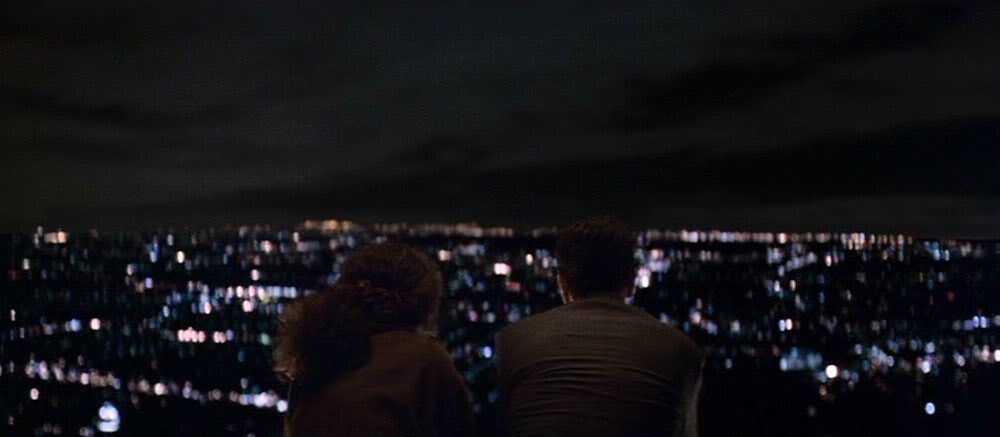
One of the finest aspects of the film lies in its immaculate level of detailing with respect to its characters and how exquisitely Michael Mann makes use of the ravishing beauty of the vibrant, seductive nights of the City of Angels to reflect upon the subconscious of his characters. There is a deeply concealed sense of melancholy in the characters that makes them so much more compelling, intriguing and human than what their daylight facades evince. Throughout the film, it is during the nights when we see the characters confronting and recognizing their inner truth and coming to terms with the moral obscurities of their choices, the perennial battle with one’s own inner demons and desires long lost in the hazy paths of city life. In one of the film’s best moments, we see Neil sharing a delicate moment that is so full of warmth and tenderness with Eady, a young, attractive woman he met in a coffee shop. In a night brimming with passionate desires and erotic undertones, Neil realizes he is ensnared by the complex web of love and desires in a tiny moment of losing out on to his frailties.
The Dashing Duo of Al Pacino and Robert De Niro
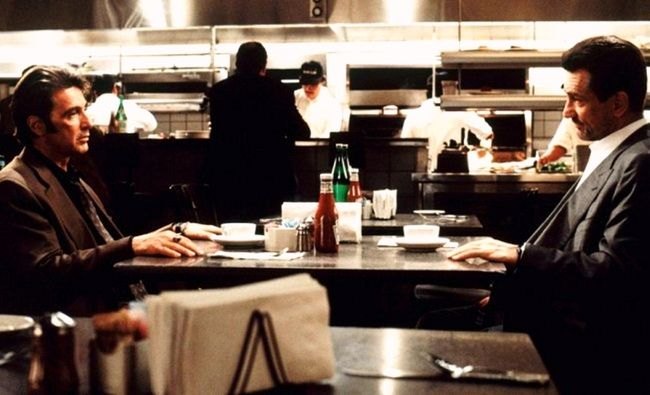
Action thriller flicks are generally not known for extracting memorably powerful performances from the actors. Michael Mann with his sheer vision and audacity pushes the film well beyond the boundaries of a genre infamous for churning out blatantly monotonous flicks and playing within its confines and in the process, brings the best out of his actors. His casting of the two leads, in particular, turned out to be a masterstroke. It’s hard to imagine anything possibly going wrong when a director, breathing fire on one end, sneaks in two of the greatest actors in cinema while interestingly drawing parallels between the characters they play in the film and their iconic stature and professional rivalry off-screen. In a film that poses itself out to be an intense cat and mouse contest between a cop and a highly professional, seasoned criminal, there couldn’t have been a better choice of actors for the part of the two leads. Pacino plays the emotionally wrecked, watchful detective looking to nab his unassailably brilliant foe played by Robert De Niro. While Pacino plays Vincent Hanna with absolute swagger and intimidating charisma, De Niro powerfully underplays Neil McCauley and the tension between their characters lurks throughout the film which pretty much sets up the film’s overall tonality. Their casting is one of the most dominant factors that contributed to the film’s iconic, cult status over the years and I can only imagine how forgettable the famous restaurant scene would have turned out to be if not for these two acting giants of cinema.
Tautly Written Characters
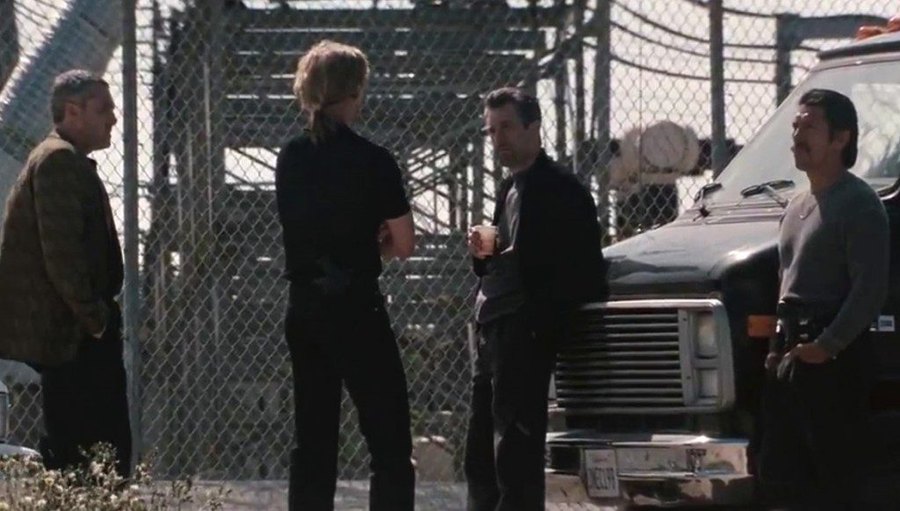
Perhaps the most remarkable aspect that consolidates the film’s stature as one of the most riveting pieces of crime drama ever made lies in its finely etched characterization; an unlikely feature in an action thriller. Mann diligently crafts his characters in a way that lets them sink in the emotions that are so beautifully underplayed without having to tell a lot. The amount of depth and complexity provided to the main characters further intensifies the film’s underlying tension. A good part of the film’s long run time is utilized to establish, develop and deepen the characters. The famous restaurant scene, apart from the flamboyance of its cast, is a fascinating look at two men who are stark opposites of each other both professionally and as individuals, arriving at a point of recognizing their lifelong inner conflicts, their deeply embedded fears and showing utmost respect and admiration for each other’s abilities while tightening the bolts on their professional rivalry. The subtlety in the scene just blows me away every time with tremendous focus directed towards the characters’ thoughts and inner dilemma that cascade like notes of a well constructed melody. Both Neil and Vincent have been failures at their personal and social lives for very different reasons. Their absolute commitment to their professions have resulted in them failing miserably at their own personal lives despite having people around to care for which makes the finale so immensely powerful. Their relationships with their women who are complete strangers to their realm of crime and violence, further personify their shortcomings which makes them so human and believable. Eady was desperate for love and to be cared for while Justine makes futile attempts at winning Vincent’s attention. And in the end both Neil and Vincent come to terms with their identities and realize they could never be loved for who they really are.
Invigorating Soundtrack
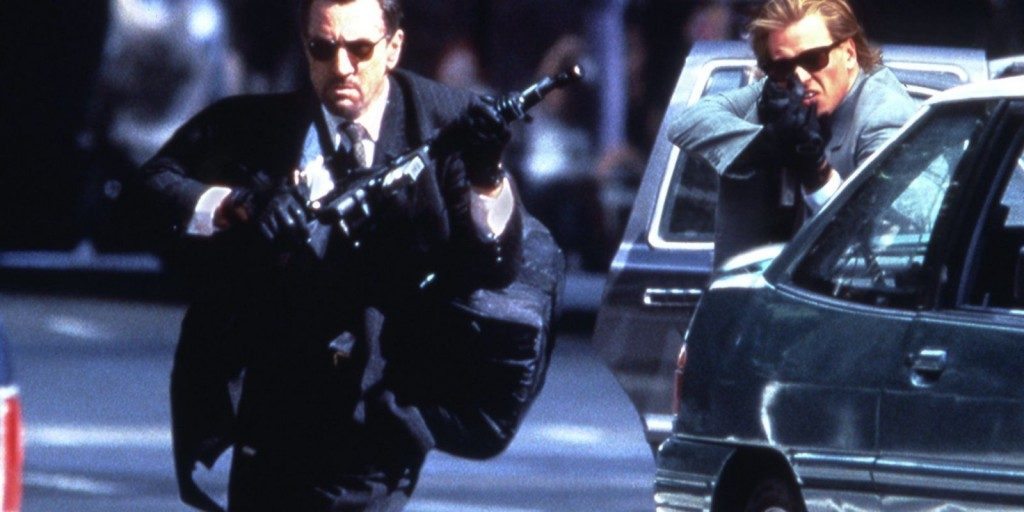
Action flicks are often replete with scores that are so dramatic and in-your-face that in most cases, it kills the power and essence of the scene. Michael Mann does not shy away from charging the film with hard-kicking, woofer-blasting scores that pump up your adrenaline. The delectable and eclectic soundtrack features numbers from numerous Jazz, Rock, Metal artists that paint the darker shades of the city of Los Angeles. The tracks beautifully play out reflecting the mood of the characters and bring in a sense of anticipation and apprehension in immensely tense situations. In one of the film’s most emotionally gripping scenes towards the end, Neil, a man of his word, makes a choice to abandon the only woman he truly loved with all his heart and gears up for a final showdown with Vincent as he is being chased into a field outside the LAX freight terminal by Vincent. In a scene throbbing with raw emotions, Mann pours out Elliot Goldenthal’s hauntingly powerful orchestration in ”Of Separation” on to the scene that stunningly encapsulates the tragic fate of the characters that has been looming around the choices they’ve made in life and the music poetically plays out as Neil is stranded in the middle of making a choice too profound and complex to be put in words. It’s gorgeously shot, unforgettably melancholic and mesmerizingly haunting.
Masterful Direction
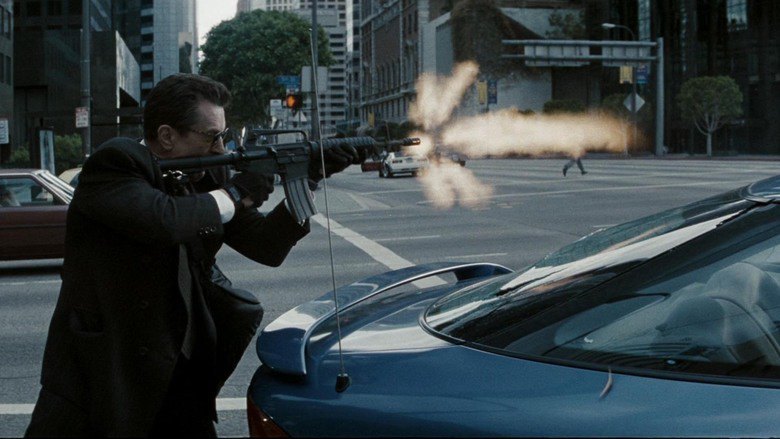
Michael Mann’s authoritative control and command over the medium is perceptible with every frame exuding a palpable sense of his vision, confidence and audacity that elevates the film to astonishing heights and ensure the film does not slip right down to the forgotten corners of slam-bang action flicks within the realms of commercial Hollywood cinema. Mann’s extensive research and meticulous focus on the historical accuracies and details of the actual events further add to the authenticity of the film while enthralling his viewers with jaw-dropping sequences filled with raw energy and nerve-wracking moments of absolute mayhem and chaos. The iconic bank robbery sequence and the ensuing shootout scenes, ably complimented by some razor-sharp editing, are fierce, staggering displays of Mann’s remarkably distinctive cinematic prowess. Michael Mann exquisitely stylizes the film’s violent, chaotic tones while abstaining from the use of blatant frills for shock value and entertainment purposes.
Nearly 22 years later, the astounding impact of the film continues to reverberate with its blistering intensity and ferocious approach, redefining and reshaping a genre for the ages by the ingenuity and inventiveness of its filmmaker who remains one of modern day American cinema’s criminally underrated masters. ‘Heat’ is one of the rare, riveting pieces of dramas to have come out of Hollywood and is perhaps the finest film by the master of city nights; a towering work of art that quenches every cinephile’s thirst.
Read More: ‘Interstellar’ is Overrated. Here’s Why.

